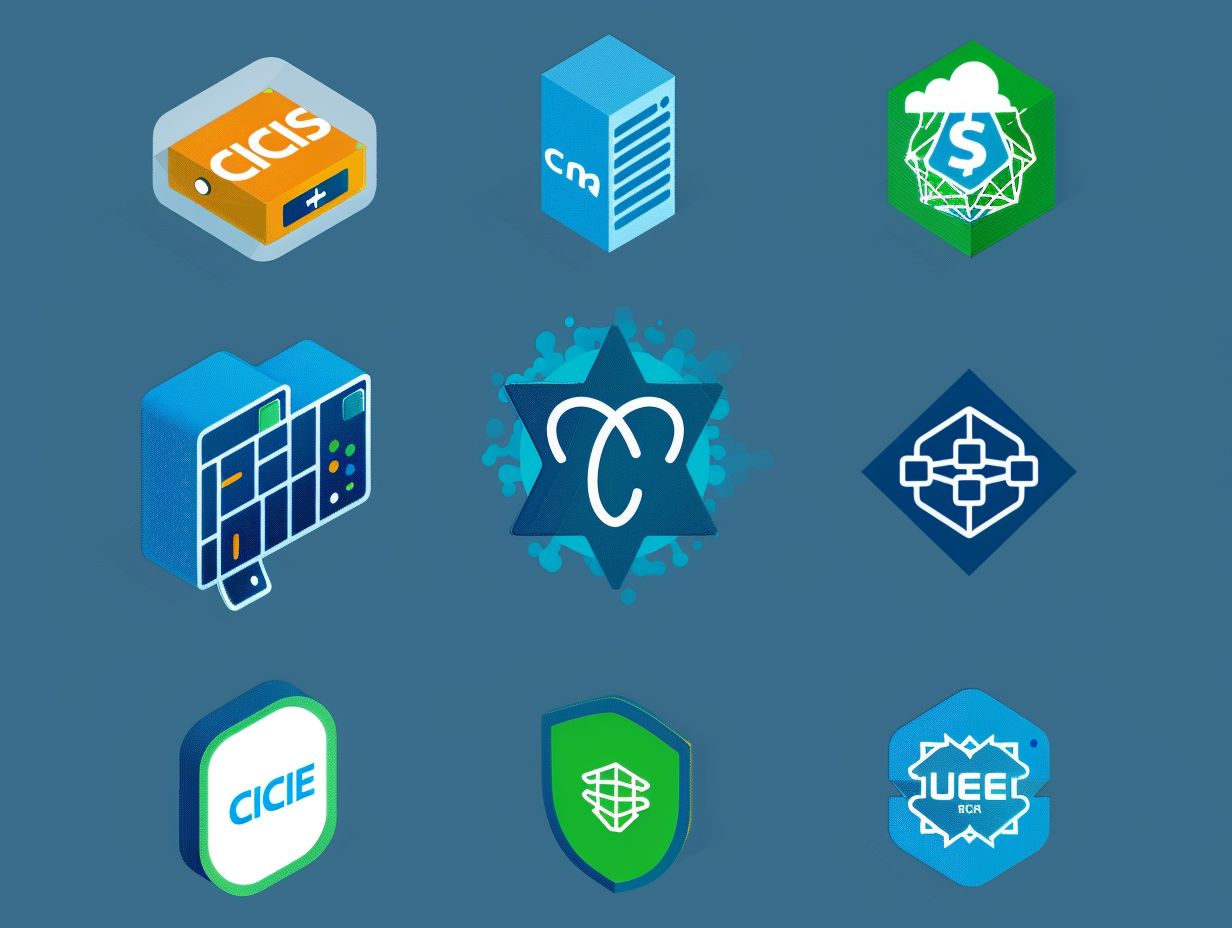Are you aiming to advance your career in the field of cybersecurity?
Cisco’s Certification Program provides a variety of security certifications that can assist professionals in distinguishing themselves in the competitive job market.
This discussion will delve into the significance of security certifications, the advantages and benefits of attaining Cisco certifications, the prominent security certifications offered by Cisco, benefits for professionals, certification prerequisites and specializations, guidance on preparing for Cisco security exams, career prospects associated with Cisco security certifications, and the criteria for upkeeping and renewing these valuable certifications.
Whether you are a newcomer in cybersecurity or seeking career progression, Cisco’s security certifications have the potential to unlock new opportunities and higher income prospects.
Key Takeaways:

Overview of Cisco’s Certification Program
Cisco’s Certification Program offers you a variety of credentials that validate your skills and knowledge as an IT professional in the industry. These certifications span across different domains, including CCIE Security, CCIE Data Center, CCIE Enterprise Infrastructure, CCNP Enterprise, and CCNA.
The CCIE certifications, such as Security and Data Center, are esteemed and acknowledged globally, focusing on cutting-edge networking technologies and solutions. CCIE Enterprise Infrastructure revolves around the design and implementation of intricate enterprise networking solutions. CCNP Enterprise certifies professionals in areas such as the implementation and operation of Cisco enterprise network solutions. CCNA acts as an entry-level certification, providing you with foundational networking knowledge.
By earning these certifications, you not only enhance your technical expertise but also validate your capabilities, opening up opportunities for career advancement, higher earning potential, and increased market value in the competitive IT sector.
Importance of Security Certifications for Professionals
Obtaining security certifications, such as those offered by Cisco, is crucial for IT professionals like you who are seeking to enhance your skills, knowledge, and career growth potential. In the dynamic IT industry, certifications like CCIE Security demonstrate your expertise in securing networks and systems against cyber threats.
Benefits and Advantages
Earning Cisco certifications offers a multitude of benefits and advantages to IT professionals. These credentials not only validate your expertise but also open doors to career growth opportunities and the potential for higher earning in the IT industry.
By attaining Cisco certifications, you can showcase your specialized knowledge in areas such as networking, cybersecurity, and cloud technologies, making you stand out in a competitive job market. These certifications enhance industry recognition, demonstrating to employers your commitment to staying updated with the latest trends and technologies.
With Cisco certifications, you gain access to a global network of fellow certified individuals, creating valuable networking opportunities that can lead to collaborations, mentorship, and career advancement.
Cisco’s Top Security Certifications

You are presented with a variety of top security certifications by Cisco that are designed to meet the varied requirements of IT professionals. These certifications encompass CCIE Security, CCIE Data Center, CCIE Enterprise Infrastructure, CCNP Enterprise, and CCNA, each concentrating on distinct aspects of network security and data center infrastructures.
Certification Requirements and Specializations
Cisco’s security certifications have specific requirements and specializations tailored to address the challenges posed by cyber threats in data center networks and infrastructures. Certifications such as CCIE Data Center, CCIE Enterprise Infrastructure, and CCNP Enterprise provide professionals like you with the necessary expertise to secure enterprise network infrastructures.
These certifications not only validate your knowledge and skills but also offer a comprehensive understanding of implementing robust security measures to protect data center environments. CCIE Data Center focuses on advanced security concepts specific to data center technologies, while CCIE Enterprise Infrastructure delves into securing complex enterprise networks. CCNP Enterprise certification covers a wide range of security topics, including network security, cloud security, and endpoint protection.
By obtaining these specialized certifications, you can effectively mitigate cyber threats and strengthen the resilience of data center infrastructures against potential security breaches.
How to Prepare for Cisco Security Exams
Preparing for Cisco’s security exams necessitates a strategic approach that merges comprehensive study materials with effective tips for success. Whether you are targeting certifications such as CCIE Security, CCIE Data Center, CCIE Enterprise Infrastructure, CCNP Enterprise, or CCNA, you must leverage the appropriate resources and strategies to achieve excellence in your exams.
Study Materials and Tips for Success
To succeed in Cisco’s security exams, you must prioritize accessing quality study materials and implementing effective strategies. Specifically, for certifications such as CCIE Security, CCIE Data Center, CCIE Enterprise Infrastructure, CCNP Enterprise, and CCNA, it is crucial to focus on comprehensive resources and exam-specific tips.
Enhancing your understanding of complex concepts and practical skills can be achieved by utilizing practice exams and hands-on labs. Consider leveraging online courses offered by reputable platforms like Cisco Learning Network, Udemy, or Coursera, which provide structured learning paths tailored to each certification level.
Engaging in group study sessions or participating in online forums can offer valuable insights and peer support throughout your exam preparation journey. Additionally, dedicating time to practical exercises and real-world scenarios can solidify your theoretical knowledge and improve problem-solving abilities, which are vital for success in Cisco’s security exams.
Career Opportunities with Cisco Security Certifications

Cisco security certifications open up a wide array of career prospects for professionals in diverse job functions and salary ranges. With certifications such as CCIE Security, CCIE Data Center, CCIE Enterprise Infrastructure, CCNP Enterprise, and CCNA, you can secure high-paying positions and progress your career in the IT sector.
Potential Job Roles and Salaries
Individuals holding Cisco certifications can explore a wide range of job opportunities within the IT industry, including positions such as network engineers, system engineers, and network consultants. These roles provide competitive salaries and avenues for professional growth across various sectors within the industry.
Network engineers are responsible for the design, implementation, and maintenance of network infrastructures, ensuring seamless data flow and connectivity. System engineers, on the other hand, focus on the installation and configuration of systems to meet organizational requirements, troubleshooting technical issues, and enhancing system performance. Additionally, network consultants offer specialized guidance on network architecture and security solutions.
Professionals in these roles, armed with Cisco certifications, can anticipate attractive salary packages, typically falling within the range of $70,000 to $120,000 per year. However, actual salary figures may vary based on individual experience, expertise levels, and geographical location.
Maintaining and Renewing Cisco Security Certifications
To maintain and renew your Cisco security certifications, you must meet continuing education requirements for credentials such as CCIE Security, CCIE Data Center, CCIE Enterprise Infrastructure, CCNP Enterprise, and CCNA. It is essential for professionals like yourself to stay updated on the latest advancements in networking technologies to ensure that your certifications remain current and relevant.
Continuing Education Requirements
Professionals pursuing Cisco certifications are required to adhere to continuing education requirements that cover networking fundamentals and IP connectivity. By actively participating in ongoing learning and skill development, you can ensure the validity of your certifications and remain competitive in the ever-changing IT landscape.
The dynamic nature of technology necessitates that individuals seeking Cisco certifications stay current with industry trends and advancements. As networking principles evolve continuously, it is essential for you to broaden your knowledge beyond the basics. This involves diving into the intricacies of IP connectivity and staying updated on the newest networking protocols. Embracing continuous education allows professionals to not only enhance their skill sets but also guarantee that their certifications align with the latest industry standards, positioning them as valuable assets in the competitive IT job market.
Frequently Asked Questions

What are Cisco’s top security certifications?
Cisco offers several top security certifications, including the Cisco Certified Network Associate Security (CCNA Security), Cisco Certified Network Professional Security (CCNP Security), and Cisco Certified Internetwork Expert Security (CCIE Security).
What is the difference between CCNA Security, CCNP Security, and CCIE Security?
The CCNA Security certification focuses on foundational network security skills, while the CCNP Security certification builds on those skills with more advanced knowledge. The CCIE Security certification is the highest level and requires expert-level knowledge and skills in network security.
What do these certifications mean for professionals?
These certifications demonstrate a high level of knowledge and expertise in network security, as well as a commitment to constantly improving and advancing in the field. They are highly respected by employers and can lead to better job opportunities and higher salaries.
What are some of the topics covered in these certifications?
The certifications cover a wide range of topics related to network security, including network infrastructure security, threat control and containment, secure access, VPN technologies, and network security troubleshooting.
Are there any prerequisites for these certifications?
There are no prerequisites for the CCNA Security certification, but it is recommended to have a basic understanding of networking concepts. The CCNP Security certification requires a valid CCNA Security certification, and the CCIE Security certification requires a valid CCNP Security certification.
Can these certifications be renewed?
These certifications must be renewed every three years to maintain their validity. This can be done by taking a recertification exam or by earning specific continuing education credits.
